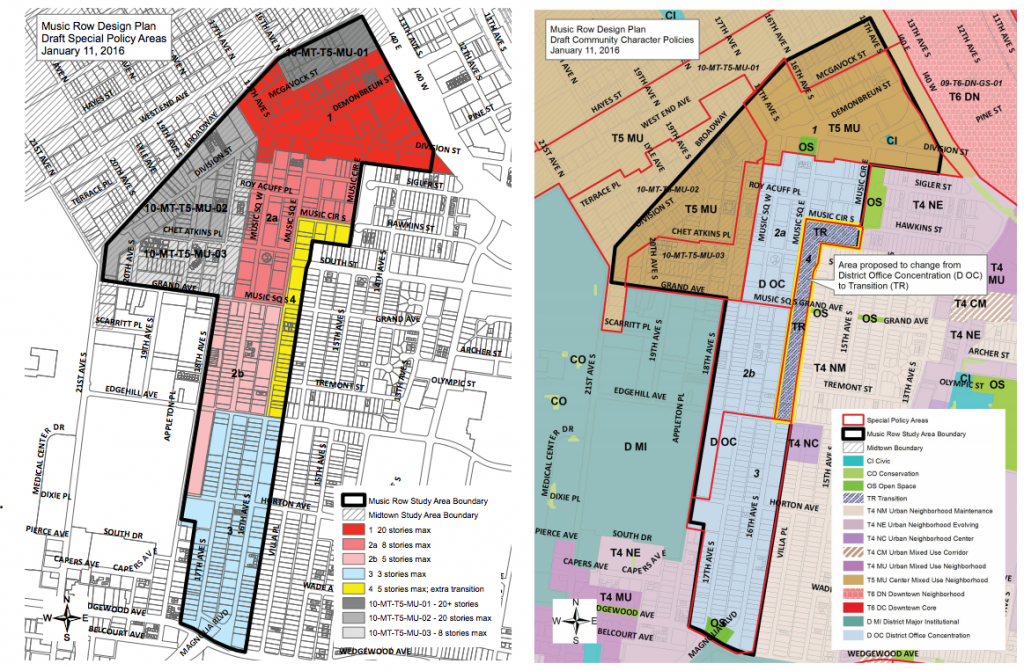
Nashville’s Metro Planning Department revealed the first draft of a proposed plan for the use of Music Row-area properties. Currently it does not involve zoning changes, but creates a land-use policy to help guide future rezoning requests. The plan includes building height restrictions, ranging from three-story limits on the southern end of Music Row near Belmont University, to a 20-story limit on buildings near Demonbreun Street.
In February 2015, the Metro Planning Commission recommended halting all rezoning requests, and recommended that the Metro Planning Department complete a study of the Music Row area, so redevelopment proposals can be treated uniformly.
The future of the Music Row area has become a hot topic, notably after RCA Studio A survived nearly being demolished in 2014. Ben Folds and songwriter-producer Trey Bruce launched a movement to save the studio, which resulted in entrepreneurs Aubrey Preston, Mike Curb and Chuck Elcan stepping in to save the property.
The Music Row area’s current high property values and rich history may bring tension between those who seek to preserve the area that has been home to music labels, publishers, marketers, and touring businesses for decades, and those who seek to make profit on properties located in a high-traffic, high-value area.
The five draft goals released by the Metro Planning Department include:
Goal 1: Preserve the integrity of Music Row as a district where the business of music production and publication occurs. There is nothing like Music Row anywhere in the nation.
Goal 2: New development should support the Music Row community while maintaining neighborhood character. Reuse of existing buildings will play a major part in helping that happen.
Goal 3: Manage tourism. Music Row should be an entertaining and educational place for tourists to visit, but we can’t let tourist traffic interfere with the work that goes on there. A visitors’ center, signage, historical markers, and mobile apps are some possible ways for tourists to learn about the history and culture of Music Row without disrupting business or creative activities.
Goal 4: Encourage collaboration. The music community should have incentives for affordable and unique creative and performance spaces along Music Row.
Goal 5: Preserve and enhance the streetscape. Music Row’s compact and walkable nature have been an essential part of the business and creative process – new development should respect that and continue to provide a pleasant, pedestrian-oriented environment.

Category: Featured
About the Author
Jessica Nicholson serves as the Managing Editor for MusicRow magazine. Her previous music journalism experience includes work with Country Weekly magazine and Contemporary Christian Music (CCM) magazine. She holds a BBA degree in Music Business and Marketing from Belmont University. She welcomes your feedback at jnicholson@musicrow.com.View Author Profile



